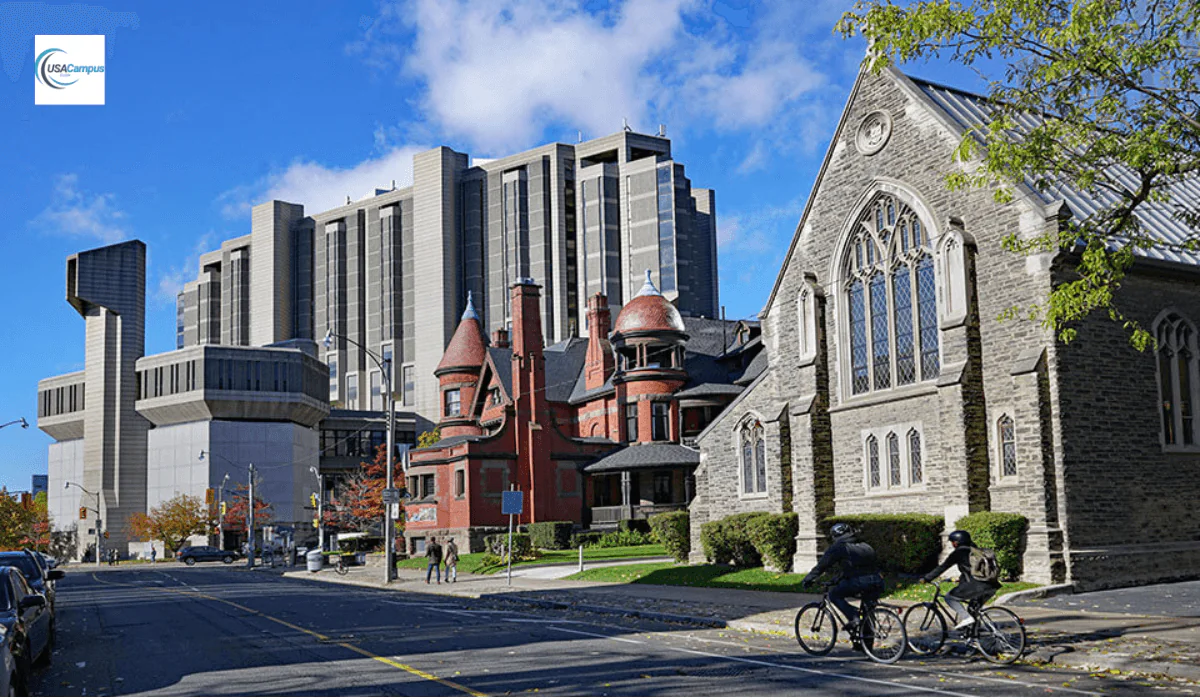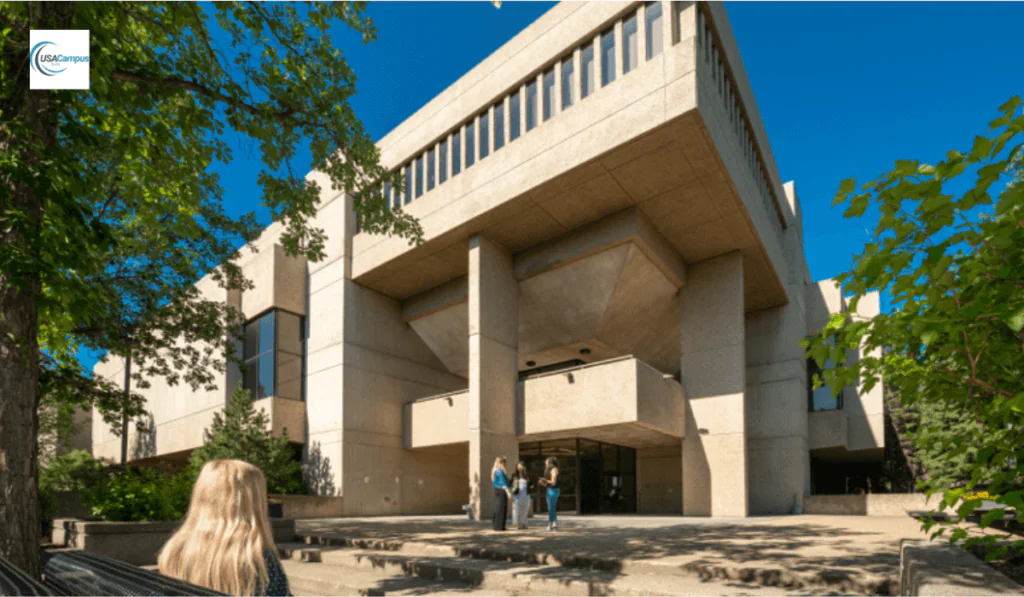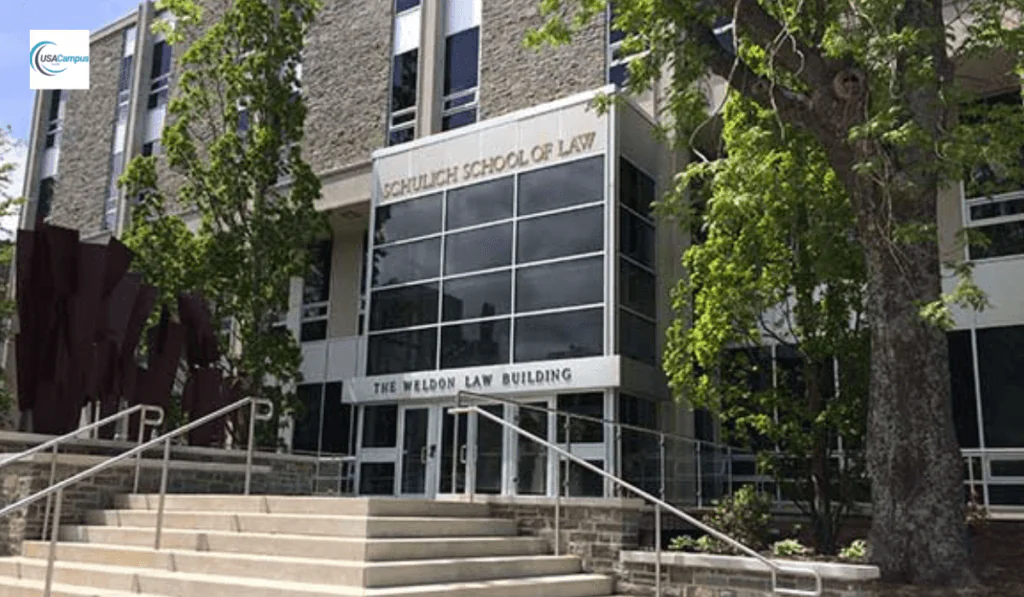Canada’s school of law offers a law degrees with world-class legal education with specialization in core niches. While choosing law school in Canada, many small question may arise in our mind, so this is just a small effort to showcase Best Law Schools in Canada.
While selecting this list we put emphasize on certain factors like Best Law schools in Canada, according to different different rank points like admission process for domestic as well as for international students, their global rankings, law program, faculty, job placement, salary expectation etc.
Best Law Schools in Canada
- University of Toronto Faculty of Law
- Osgoode Hall Law School at York University
- McGill University Faculty of Law
- University of British Columbia (UBC) Faculty of Law
- University of Alberta Faculty of Law
- Queen’s University Faculty of Law
- University of Ottawa Faculty of Law
- Dalhousie University Schulich School of Law
- Western University Faculty of Law
- University of Calgary Faculty of Law
1. University of Toronto Faculty of Law
No Canadian should ever consider any other law school than the esteemed Faculty of Law at the University of Toronto. The institution has gained immense recognition for its illustrious faculty, diverse courses offered, and strong research. Its many concentrations and joint degree program make it a top choice for students as Best Law Schools in Canada.

- Ranking: #1 in Canada, #16 globally (Times Higher Education 2023)
- Programs: Juris Doctor (JD), Master of Laws (LLM), Doctor of Juridical Science (SJD)
- Admission Requirements:
- For JD: Bachelor’s degree, LSAT score
- For LLM: First degree in law with strong academic standing
- English proficiency (TOEFL iBT 100+, IELTS 7.5+)
- Fees (2023-2024):
- Domestic JD: CAD 33,040 per year
- International JD: CAD 56,720 per year
2. Osgoode Hall Law School at York University
Osgoode is considered one of the Best law schools in Canada, with a strong reputation for academic excellence, experiential education, and producing influential graduates. Its large size and flexible curriculum offer students many opportunities to customize their legal education.
- Ranking: #4 in Canada, #51-100 globally (QS World University Rankings for Law 2023)
- Programs: Juris Doctor (JD), Combined JD/MBA, JD/MPA
- Admission Requirements:
- For JD: Bachelor’s degree, LSAT score
- For LLM: Law degree with strong academic standing
- English proficiency (TOEFL iBT 100+, IELTS 7.0+)
- Fees (2023-2024):
- Domestic JD: CAD 24,937 per year
- International JD: CAD 40,616 per year
3. McGill University Faculty of Law
The Faculty of Law at McGill is renowned for its innovative approach to legal education, This university USP is combining public law and common law traditions in a bilingual format. Its graduates are highly sought after for their versatility and global perspective on law.
- Ranking: #2 in Canada, #29 globally (QS World University Rankings for Law 2023)
- Programs: Bachelor of Civil Law/Juris Doctor (B.C.L./J.D.), Master of Laws (LLM), Doctor of Civil Law (D.C.L.)
- Admission Requirements:
- For B.C.L./J.D.: Bachelor’s degree, no LSAT required
- For LLM: Law degree with strong academic standing
- English and French proficiency
- Fees (2023-2024):
- Quebec residents: CAD 2,725 per year
- Non-Quebec Canadian: CAD 8,186 per year
- International: CAD 45,753 per year
4. University of British Columbia (UBC) Faculty of Law
UBC’s Allard School of Law is celebrated for its emphasis on environmental law, Indigenous legal studies, and business law in a global context. The school has a strong global presence and offers numerous international exchange programs.
- Ranking: #3 in Canada, #37 globally (QS World University Rankings for Law 2023)
- Programs: Juris Doctor (JD), Master of Laws (LLM), Doctor of Philosophy (Ph.D.) in Law
- Admission Requirements:
- For JD: Bachelor’s degree, LSAT score
- For LLM: Law degree with strong academic standing
- English proficiency (TOEFL iBT 100+, IELTS 7.0+)
- Fees (2023-2024):
- Domestic JD: CAD 13,149 per year
- International JD: CAD 54,048 per year
5. University of Alberta Faculty of Law
The University of Alberta Faculty of Law is ranked for its extensive research programs and commitment to Indigenous legal education. It boasts a high employment rate for graduates and a supportive alumni network.

- Ranking: #7 in Canada (Maclean’s 2023 Law School Rankings)
- Programs: Juris Doctor (JD), Master of Laws (LLM), PhD in Law
- Admission Requirements:
- For JD: Bachelor’s degree, LSAT score
- For LLM: Law degree with strong academic standing
- English proficiency (TOEFL iBT 100+, IELTS 7.0+)
- Fees (2023-2024):
- Domestic JD: CAD 11,701 per year
- International JD: CAD 32,729 per year
6. Queen’s University Faculty of Law
Queen’s University Faculty of Law is known for its strong academic reputation, focus on public service, and a vibrant alumni network. The school offers a range of specializations and practical learning opportunities.
- Ranking: #5-6 in Canada (Maclean’s 2023 Law School Rankings)
- Programs: Juris Doctor (JD), Combined JD programs, Master of Laws (LLM), PhD in Law
- Admission Requirements:
- For JD: Bachelor’s degree, LSAT score
- For LLM: Law degree with strong academic standing
- English proficiency (TOEFL iBT 90+, IELTS 7.0+)
- Fees (2023-2024):
- Domestic JD: CAD 20,722 per year
- International JD: CAD 46,989 per year
How to become a Doctor in Canada? | 7 Steps Guide
7. University of Ottawa Faculty of Law
The University of Ottawa Faculty of Law is renowned for its bilingual curriculum and focus on international and comparative law. The school offers a diverse range of specializations and has a strong emphasis on public interest law.
- Ranking: #5-6 in Canada (Maclean’s 2023 Law School Rankings)
- Programs: Juris Doctor (JD), National Program (JD/LLL), Master of Laws (LLM), PhD in Law
- Admission Requirements:
- For JD: Bachelor’s degree, LSAT score
- For LLM: Law degree with strong academic standing
- English and/or French proficiency depending on program
- Fees (2023-2024):
- Domestic JD: CAD 19,260 per year
- International JD: CAD 45,285 per year
8. Dalhousie University Schulich School of Law
Dalhousie’s Schulich School of Law is recognized for its focus on legal practice and its strong ties to the maritime legal community. The school offers a range of specializations and practical learning opportunities.

- Ranking: #10 in Canada (Maclean’s 2023 Law School Rankings)
- Programs: Juris Doctor (JD), Combined JD programs, Master of Laws (LLM), PhD in Law
- Admission Requirements:
- For JD: Bachelor’s degree, LSAT score
- For LLM: Law degree with strong academic standing
- English proficiency (TOEFL iBT 100+, IELTS 7.0+)
- Fees (2023-2024):
- Domestic JD: CAD 18,603 per year
- International JD: CAD 34,974 per year
9. Western University Faculty of Law
Western University Faculty of Law is known for its strong academic reputation, focus on legal theory and philosophy, and its diverse faculty. The school offers a range of specializations and practical learning opportunities make it as Best Law Schools in Canada.
- Ranking: #8 in Canada (Maclean’s 2023 Law School Rankings)
- Programs: Juris Doctor (JD), Combined JD programs, Master of Laws (LLM)
- Admission Requirements:
- For JD: Bachelor’s degree, LSAT score
- For LLM: Law degree with strong academic standing
- English proficiency (TOEFL iBT 100+, IELTS 7.0+)
- Fees (2023-2024):
- Domestic JD: CAD 23,496 per year
- International JD: CAD 46,372 per year
10. University of Calgary Faculty of Law
The University of Calgary Faculty of Law is celebrated for its strong research programs, focus on energy law, and its commitment to community engagement. The school offers a range of specializations and practical learning opportunities.
- Ranking: #9 in Canada (Maclean’s 2023 Law School Rankings)
- Programs: Juris Doctor (JD), Master of Laws (LLM), PhD in Law
- Admission Requirements:
- For JD: Bachelor’s degree, LSAT score
- For LLM: Law degree with strong academic standing
- English proficiency (TOEFL iBT 100+, IELTS 7.0+)
- Fees (2023-2024):
- Domestic JD: CAD 15,086 per year
- International JD: CAD 32,796 per year
Eligibility Criteria
Eligibility Criteria for Law studies varies for domestic as well as to international students. Below is the complete requirement for both the law students.

For Domestic Students
Domestic applicants typically apply through the law school’s direct application system or a centralized service like OLSAS in Ontario. The process typically involves these steps:
- Undergraduate Degree: A bachelor’s degree from a recognized institution.
- GPA Requirement: A competitive Grade Point Average (GPA), often above 3.0 on a 4.0 scale.
- LSAT Scores: A valid Law School Admission Test (LSAT) score. While the required score varies by school, a score above 160 is typically competitive.
- Personal Statement: A personal statement or essay outlining the applicant’s motivation and suitability for a career in law.
- Letters of Recommendation: At least two letters of recommendation, preferably from academic or professional references.
- Resume/CV: A detailed resume highlighting academic achievements, work experience, and extracurricular activities.
- Interviews: Some schools conduct interviews, either in person or virtually, as part of the selection process.
For International Students
International students must meet the same academic standards as domestic students and also:
- Language Proficiency: Non-native English speakers must provide proof of English proficiency through tests like TOEFL or IELTS.
- Study Permit: After acceptance, international students must obtain a Canadian study permit.
- Financial Documentation: Demonstrate financial stability to cover tuition and living expenses.
Placement Success
Best Law Schools in Canada have a strong track record of placing graduates in prestigious law firms, government agencies, and corporate organizations. Career services departments provide students with guidance, networking opportunities, and access to internships.
The placement success rate for law school graduates in Canada is generally high, with a significant percentage securing employment within a few months of graduation.
Job Opportunities and Salary Range
Job Opportunities
Graduates from top law schools in Canada have access to a wide range of career opportunities, including:
- Private Practice: Working as a lawyer in law firms specializing in various areas such as corporate law, criminal law, family law, and intellectual property law.
- Corporate Counsel: Providing legal advice to corporations and handling corporate legal matters.
- Government and Public Sector: Working in federal, provincial, or municipal government agencies, including roles as prosecutors, legal advisors, and policy analysts.
- Public Interest Law: Working for non-profit organizations, advocacy groups, and legal aid clinics.
- Academic and Research: Pursuing careers in academia and legal research.
Salary Range
The salary range for law graduates varies depending on the area of specialization, region, and level of experience. On average:
- Starting Salary: CAD 60,000 to CAD 80,000 per year.
- Mid-Career Salary: CAD 100,000 to CAD 150,000 per year.
- Experienced Lawyers: CAD 150,000 to CAD 300,000+ per year.
Conclusion
Choosing the best law school in Canada can significantly impact a student’s legal career. The top-ranked law schools in Canada provide excellent academic programs, experienced faculty, and strong placement opportunities. Prospective students should carefully consider the rankings, eligibility criteria, admission process, fee structure, and career prospects before making a decision. By doing thorough research and understanding their goals, students can embark on a rewarding journey towards becoming successful legal professionals in Canada.
FAQ’s
What is the best law school in Canada?
Above article will showcase the complete list of Best Law School in Canada. Where you can find all the details about “Best Law Colleges in Canada”
How to get into law school in Canada?
In above article you can follow complete procedure to get admission in law school in Canada. which will show you even if you are domestic or international student.
How much does law school cost in Canada?
On an average, Law school cost you CAD 10,000 to CAD 50,000 for tuition Fees & other activities. While Living, food other expenses cost you around CAD 10000, depending on your lifestyle.
Can I pursue a law degree in Canada without an undergraduate degree?
No, an undergraduate degree is a prerequisite for admission to law schools in Canada.
Can international students apply for scholarships or financial aid?
Yes, many law schools in Canada offer scholarships and financial aid options for international students. It’s important to check the specific criteria and application process for each institution.
What is the duration of a law degree in Canada?
The Juris Doctor (JD) program in Canada typically takes three years to complete.
Can I practice law anywhere in Canada with a degree from any Canadian law school?
Yes, but graduates must pass the bar exam in the province where they wish to practice.
Can international students stay in Canada after graduation
Yes, international graduates can apply for a post-graduation work permit that allows them to work in Canada for up to three years after finishing their degree.
What types of law specializations are available in Canadian law schools?
Canadian law schools offer a wide range of specializations, including corporate law, environmental law, human rights law, intellectual property law, international law, and more.
Is it possible to take the bar exam without going to law school?
No, in Canada, you must complete a law degree (JD) from an accredited law school to be eligible to take the bar exam.
What is articling, and why is it required?
Articling is a period of apprenticeship under the supervision of a licensed lawyer. It provides practical legal experience and is a required step before being called to the bar in Canada.
Can you go to law school in America and still practice law in Canada?
Yes, but you must go through the NCA assessment process, complete any required exams, and fulfill the bar admission requirements of the province where you wish to practice.
I am Micheal V, a freelance blog writer. I have expertise in writing blog with interest in Travel, Education, Stock Market. I can help my customers to get Ad sense Approval, You can connect with me for any blog writing service on “usacampusguide@gmail.com“, by mentioning Subject as “Blog Writing Service”
